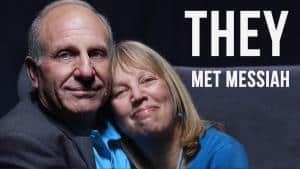Torah Portion for week 11: Genesis 44:18 – 47:27
וַיִּגַּשׁ
Vayigash (And he drew near)
What do Joseph and Yeshua have in common? As we continue the exciting story of Joseph in Egypt, today we are asking ourselves, “What does Joseph have to do with Yeshua? And what does his rejection by his brothers have to do with Israel’s rejection of the Messiah?” We pick up the story with the final encounter of Joseph, the lord of Egypt, and his brothers. Last week we saw that Jacob’s sons went down to Egypt to obtain food, not knowing that their greatest fear is about to come true: Joseph, their brother, is alive and he remembers everything.
Joseph puts his brothers to the test twice, to see if they have learned their lesson after all these years. Both tests have to do with Benjamin, Rachel’s only other son; and both are meant to test the brothers’ character – would they also callously take Benjamin away from his father, just as they took Joseph away some twenty years before? Or would they attempt to save him from such a fate?
Surprisingly, in both cases it is Judah, who years ago had said, “What profit is it if we kill our brother and conceal his blood? Come, let us sell him to the Ishmaelites . . .” (Gen 37:26, 27), who now rises to the occasion. First he offers himself to Jacob as a guarantee for Benjamin’s safety; and in this week’s reading he offers himself as a slave to the Egyptian ruler, just so Benjamin can go free. He pleads, “Please let your servant remain instead of the boy as a servant to my lord, and let the boy go back with his brothers. For how can I go back to my father if the boy is not with me? I fear to see the evil that would find my father” (Gen 44:33, 34).
It is at this point that Joseph breaks down. He sees that Judah, in many ways the worst of his brothers, has indeed changed. Unable to contain himself, Joseph orders everyone except his brothers to leave the room. And now – the first time that Joseph is alone with his own brothers – he reveals to them his true identity! “I am your brother, Joseph, whom you sold into Egypt” (Gen 45:4).
In the New Testament (Acts 7) we find a wonderful midrash, or homily, on this story. Before his death, Stephen delivers a powerful message to the people, illustrating from Israel’s history that although Yeshua was rejected, he is nonetheless the promised Deliverer. One such illustration is Moses, who was rejected by his people the first time he attempted to deliver them, but was accepted the second time, when he returned to Egypt some forty years later. Another illustration is from the life of Joseph. Here is what Stephen says in Acts 7:9-14:
And the patriarchs, jealous of Joseph, sold him into Egypt; but God was with him and rescued him out of all his afflictions and gave him favor and wisdom before Pharaoh, king of Egypt, who made him ruler over Egypt and over all his household. Now there came a famine throughout all Egypt and Canaan, and great affliction, and our fathers could find no food. But when Jacob heard that there was grain in Egypt, he sent out our fathers on their first visit. And on the second visit Joseph made himself known to his brothers, and Joseph’s family became known to Pharaoh. And Joseph sent and summoned Jacob his father and all his kindred, seventy-five persons in all. (emphasis added)
With both Moses and Joseph, Stephen is making the same point: both men were raised by God to deliver Israel, but both were initially rejected by their own people, and only later were they accepted. Only when Moses returned the second time was he received as a savior, and only on the second visit did Joseph reveal himself to his brothers. Stephen’s argument is clear – the rejection of Yeshua is no different than that of Moses and Joseph, whom all would agree were sent as deliverers to Israel. And their delayed acceptance only foreshadows that of Yeshua. Israel now largely rejects him, but will later accept him.
Together with Stephen, we plead with our people, even today, to recognize this pattern of initial rejection and later acceptance, and to believe that though Yeshua was rejected, he nevertheless is the only Savior whom God has raised for our ultimate rescue from sin. He is the promised prophet like Moses (Deut 18:18, 23; Acts 3:22) and he is also like our brother Joseph, whom God sent before us to preserve life (Gen 45:7)!






















